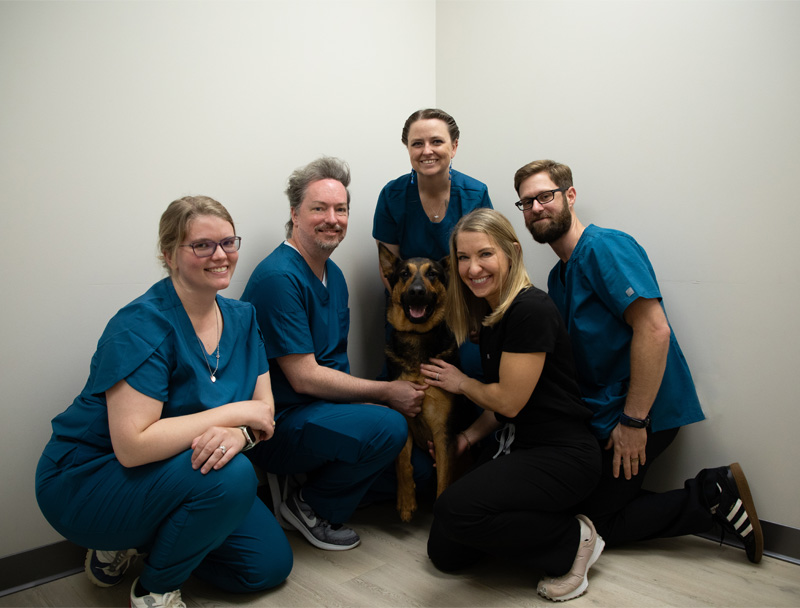
Frequently Asked Questions
Get answers to common questions about veterinary ophthalmology and what to expect at Carolina Animal Eye.
Supporting Pet Owners with Clear, Helpful Information
We know that visiting a veterinary specialist may be new for many pet owners. Our goal is to make the process clear and stress-free, from scheduling your first exam to understanding your pet’s diagnosis and treatment plan. Below, you’ll find answers to some of the most common questions we receive.
What is a board-certified veterinary ophthalmologist?
A board-certified veterinary ophthalmologist is a veterinarian who has completed advanced training and rigorous testing in the specialty of veterinary ophthalmology. After earning a Doctor of Veterinary Medicine (DVM) degree, a board-certified ophthalmologist must complete a one-year internship, a three-year ophthalmology residency, and pass a comprehensive certification exam administered by the American College of Veterinary Ophthalmologists (ACVO).
How is a veterinary ophthalmologist different from my regular veterinarian?
General practice veterinarians are highly skilled in providing comprehensive health care for your pet, including vaccinations, wellness exams, and basic eye care. A veterinary ophthalmologist specializes specifically in the diagnosis, treatment, and surgical management of diseases affecting the eyes and surrounding structures.
Your family veterinarian may refer you to Carolina Animal Eye when your pet requires advanced diagnostics, surgical procedures, or ongoing management of complex eye conditions such as cataracts, glaucoma, corneal ulcers, or retinal disease. We work as an extension of your veterinary care team to ensure your pet receives the highest level of specialized eye care.
What should I expect during an ophthalmology exam?
At your pet’s initial exam, our team will begin by reviewing your pet’s medical history and discussing any symptoms you’ve noticed. We then perform a comprehensive eye examination using specialized equipment designed to detect and diagnose a wide range of ocular conditions.
The exam may include:
- Tear production testing
- Fluorescein staining to detect corneal ulcers
- Intraocular pressure measurement (tonometry)
- Ophthalmoscopic evaluation of the eye’s internal structures
After the exam, we will review our findings with you, explain your pet’s condition, and discuss treatment options. We’ll also work closely with your primary veterinarian to coordinate ongoing care as needed.
Do I need a referral to schedule an appointment?
We are currently a referral-based clinic, so most of our patients are sent to us by their primary care veterinarians. If you’re concerned about your pet’s eyes, we encourage you to speak with your vet first. We work closely with referring veterinarians throughout the entire process to ensure your pet receives the best care possible. If you’re unsure how to get started, feel free to reach out — we’re happy to help guide you.
What types of animals do you treat?
Although dogs and cats are our most common patients, we treat a wide variety of animals.
How do I know if my pet has an eye problem?
Pets can’t tell us when something is wrong, but there are common signs that may indicate an eye issue. If you notice any of the following symptoms, it’s best to schedule an exam with your veterinarian or a veterinary ophthalmologist:
- Redness or swelling around the eyes
- Squinting or keeping one eye closed
- Excessive tearing or eye discharge
- Cloudiness or a change in eye color
- Rubbing or pawing at the eyes
- Bumping into objects or signs of vision loss
- Visible injury or sudden behavior changes
Can all eye problems in pets be treated?
While not every eye condition can be fully cured, many can be effectively managed or treated to improve your pet’s quality of life and prevent further damage. Some conditions, like minor corneal ulcers or conjunctivitis, may resolve with medication. Others, such as cataracts or glaucoma, may require surgery or long-term management by a veterinary ophthalmologist.
